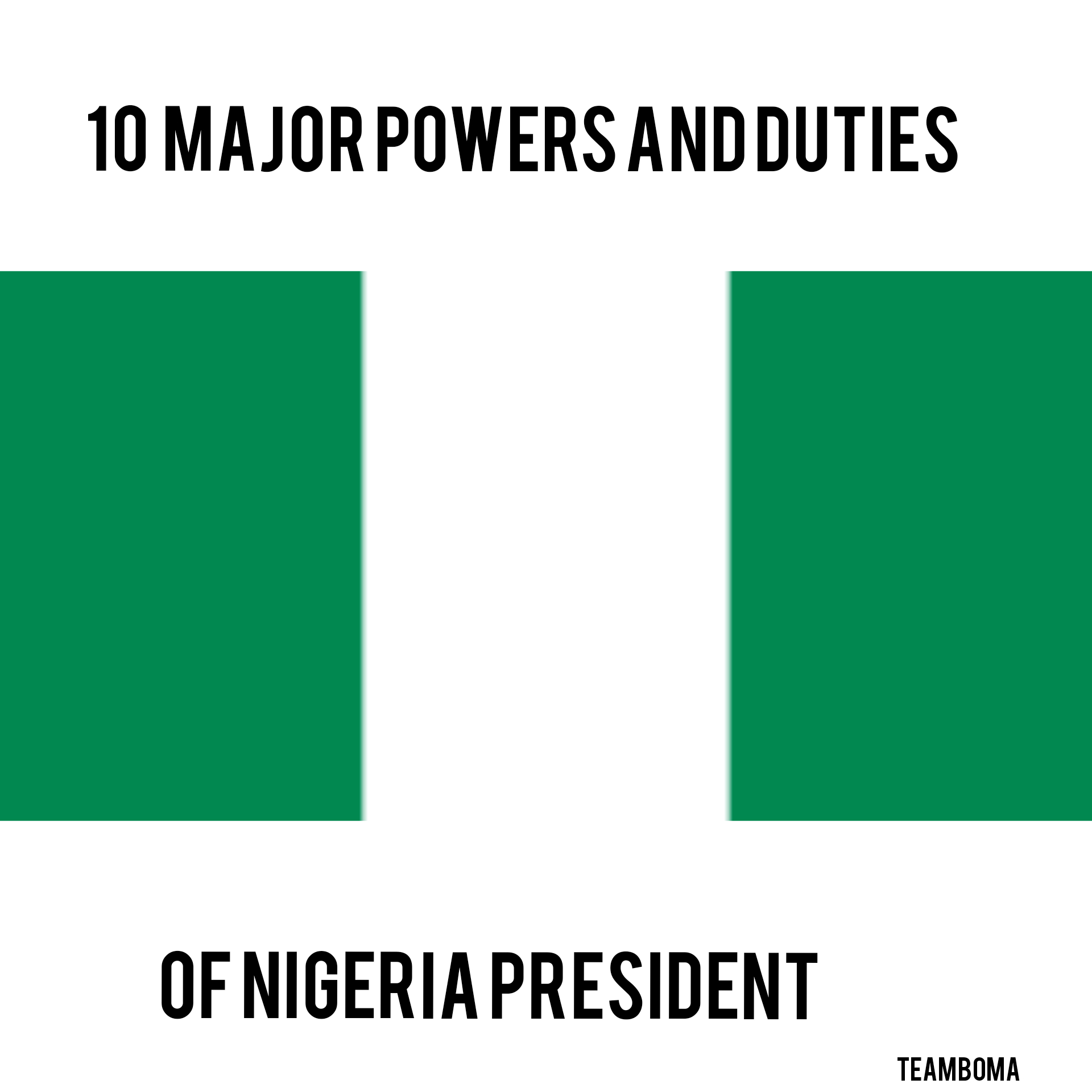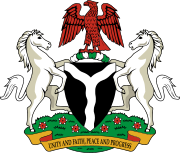10 Major Powers And Duties Of The President Of Nigeria

The President of Nigeria is the head of state and government of the country. The office of the presidency is considered the highest office in the country, and the president has significant powers and duties.
The President of Nigeria has significant powers and duties that are essential to the running of the country. The president serves as the head of state and government and is responsible for ensuring the security and prosperity of the nation. The president's powers and duties are outlined in the Nigerian Constitution, and the president must act by the Constitution at all times. In this article, we will discuss the ten major powers and duties of the President of Nigeria.
- Commander-in-Chief of the Armed Forces
- Appointing Ministers
- Signing Bills into Law
- Diplomatic Relation
- National Security
- Budget Approval
- Appointing Judges
- State of the Nation address
- Economic Management
- Crisis Management
10 Major Powers And Duties Of the President of Nigeria

1. Commander-in-Chief of the Armed Forces
The President of Nigeria is the Commander-in-Chief of the Armed Forces of Nigeria. As such, the president has the power to direct the armed forces in times of war and to declare a state of emergency in the country.
2. Appointing Ministers
The President of Nigeria has the power to appoint and remove ministers who will serve in the government. The ministers are responsible for various government ministries, and they serve as advisers to the president.
3. Signing Bills into Law
The President of Nigeria has the power to sign bills into law that has been passed by the National Assembly. The president can also veto bills and return them to the National Assembly for further review.
4. Diplomatic Relations
READ ALSO » President Bola Ahmed Tinubu: The New Nigeria President - Top 10 Facts You Should Know About Him
The President of Nigeria is responsible for establishing and maintaining diplomatic relations with other countries. The president represents Nigeria in international conferences, summits, and other meetings.
5. National Security
The President of Nigeria is responsible for ensuring the security of the country. The president has the power to declare a state of emergency and to take measures to protect the country from external and internal threats.
6. Budget Approval
The President of Nigeria is responsible for approving the national budget. The budget is prepared by the Ministry of Finance and is presented to the president for approval.
7. Appointing Judges
The President of Nigeria has the power to appoint and remove judges who serve in the country's courts. The president appoints judges to the Supreme Court, the Court of Appeal, and the High Court.
8. State of the Nation Address
The President of Nigeria is required to address the National Assembly once a year to provide an update on the state of the nation. This address is known as the State of the Nation Address.
9. Economic Management
The President of Nigeria is responsible for managing the country's economy. The president oversees economic policies and works with the Ministry of Finance to implement fiscal policies.
10. Crisis Management
The President of Nigeria is responsible for managing crises that occur in the country. The president can declare a state of emergency in times of crisis and take measures to ensure the safety and security of the country.
READ ALSO » Top 10 Highest Paid President In Africa 2023
In addition to these ten powers and duties, the President of Nigeria also has the power to grant pardons, commute sentences, and confer honours and awards. The president also serves as the chairman of the National Security Council and the National Defence Council.
